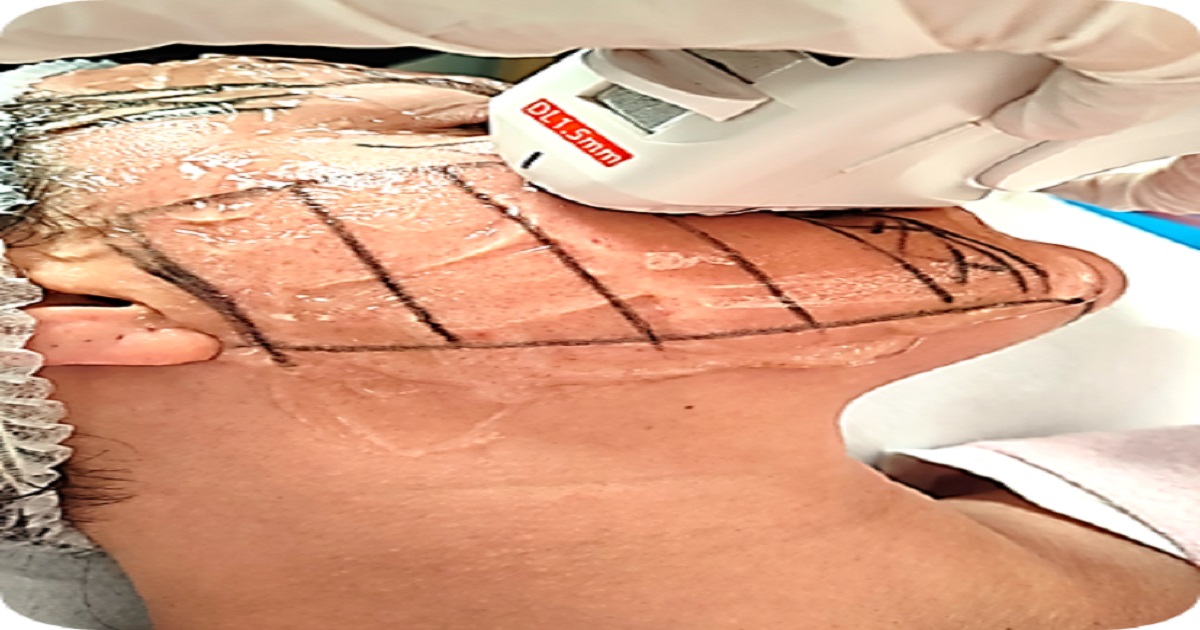Advanced Devices, Biomedical Technologies and Their Applications in Dermatology
A special issue of Applied Sciences (ISSN 2076-3417). This special issue belongs to the section "Applied Biosciences and Bioengineering".
Deadline for manuscript submissions: 20 December 2025 | Viewed by 228

Special Issue Editors
Interests: ageing; biomedical technologies in aesthetic and cosmetology; non-invasive body contouring technologies; dermatology
Interests: animal coronaviruses; apoptosis; apoptotic pathways; sexually transmitted diseases; awareness; knowledge score; Greek young adults; breast cancer; ER-negative; EGFR; TKIs; RANK-c; cardiovascular research; healthy lifestyle promotion; stress management; public health; ageing and longevity; regenerative and reparative medicine; pharmacology; hypertension; lipids; metabolism and nutrition
Special Issue Information
Dear Colleagues,
The continuous advancement of technology in the field of dermatology has led to the emergence of numerous innovative applications aimed at the restoration and enhancement of various conditions affecting the skin and subcutaneous tissue. These technological innovations fall under the domain of biomedical technology and include sophisticated, non-invasive devices that function through the generation and transmission of energy to biological tissues.
Biomedical technology has significantly transformed our understanding of human physiology and pathology, offering new tools for the diagnosis, treatment, and prevention of dermatological conditions. Of particular relevance is the intersection of biomedical technology with aesthetic dermatology, medical aesthetics, and cosmetology. As with any medical application, technologies intended for human use must prioritise patient safety, delivering therapeutic benefits without introducing undue risks or complications. Achieving this requires a thorough understanding of the mechanisms of action of each device, an in-depth knowledge of skin physiology, and accurate diagnosis of aesthetic concerns such as wrinkles, skin laxity, dehydration, cellulite, etc.
The availability and advancement of cutting-edge technologies in aesthetic dermatology are of paramount importance. Equally critical is the role of healthcare professionals in accurately assessing dermatological needs and selecting the most appropriate technological interventions, whether individually or in combination.
In this context, we are seeking original research articles, review papers, and comparative studies that explore the safety, efficacy, and clinical applications of advanced devices and technologies in aesthetic dermatology. Topics of interest include, but are not limited to, the following:
- Invasive and non-invasive advanced technologies for skin rejuvenation and fat reduction.
- Innovations in laser-based aesthetic procedures.
- Advances in ultrasound-based treatments (e.g., HIFU, MFU-V).
- Cutting-edge devices in cryotherapy and thermotherapy.
- Mesotherapy and radiofrequency technologies.
- Complications and adverse effects associated with advanced aesthetic procedures.
- Clinical investigation and refinement of both invasive and non-invasive dermatological technologies.
- Novel insights into the synergistic effects of combining modern technologies.
- Development and validation of combination treatment protocols.
- Randomised controlled trials assessing the long-term safety and effectiveness of these technologies.
- Clinical case studies demonstrating applications and outcomes.
We welcome original contributions that highlight recent advancements and technical developments in this field. Submissions may include experimental studies, clinical trials, systematic reviews, and comparative analyses.
Dr. Foteini Biskanaki
Prof. Dr. Dimitrios Chaniotis
Guest Editors
Manuscript Submission Information
Manuscripts should be submitted online at www.mdpi.com by registering and logging in to this website. Once you are registered, click here to go to the submission form. Manuscripts can be submitted until the deadline. All submissions that pass pre-check are peer-reviewed. Accepted papers will be published continuously in the journal (as soon as accepted) and will be listed together on the special issue website. Research articles, review articles as well as short communications are invited. For planned papers, a title and short abstract (about 250 words) can be sent to the Editorial Office for assessment.
Submitted manuscripts should not have been published previously, nor be under consideration for publication elsewhere (except conference proceedings papers). All manuscripts are thoroughly refereed through a single-blind peer-review process. A guide for authors and other relevant information for submission of manuscripts is available on the Instructions for Authors page. Applied Sciences is an international peer-reviewed open access semimonthly journal published by MDPI.
Please visit the Instructions for Authors page before submitting a manuscript. The Article Processing Charge (APC) for publication in this open access journal is 2400 CHF (Swiss Francs). Submitted papers should be well formatted and use good English. Authors may use MDPI's English editing service prior to publication or during author revisions.
Keywords
- ageing
- acne scars
- aesthetic procedures
- aesthetic dermatology
- biomedical science in aesthetics
- cellulite
- laser
- ultrasound
- non-invasive devices
- mesotherapy
Benefits of Publishing in a Special Issue
- Ease of navigation: Grouping papers by topic helps scholars navigate broad scope journals more efficiently.
- Greater discoverability: Special Issues support the reach and impact of scientific research. Articles in Special Issues are more discoverable and cited more frequently.
- Expansion of research network: Special Issues facilitate connections among authors, fostering scientific collaborations.
- External promotion: Articles in Special Issues are often promoted through the journal's social media, increasing their visibility.
- Reprint: MDPI Books provides the opportunity to republish successful Special Issues in book format, both online and in print.
Further information on MDPI's Special Issue policies can be found here.






